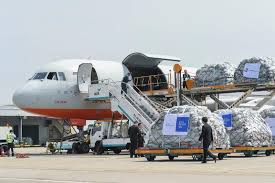Its second big challenge is overseas. Besides having to fix TNT, FedEx has found itself in the awkward position of being on the wrong side of both adversaries in the trans-Pacific trade war. In recent months it was forced to apologise to China for diverting packages belonging to Huawei. FedEx said that this was owing to an error. Nonetheless the Chinese government is reportedly threatening to put FedEx on its own blacklist. And the company has also sued its own government, saying it should not be deputised to “police the contents” of any packages it sends to check that they do not violate export bans.

Besides the ugly geopolitics, global competition is also rising for FedEx. One of the biggest threats comes from Cainiao, a Chinese rival backed by Alibaba that in 2017 pledged to invest $15bn in cross-border logistics. FedEx claims that its own vast network, extending to 220 countries, safeguards it from such incursions. But it is not used to having tanks the size of Amazon’s and Alibaba’s on its lawn; their troves of data on customers may give them an edge in the delivery wars.
译文由可可原创,仅供学习交流使用,未经许可请勿转载。












